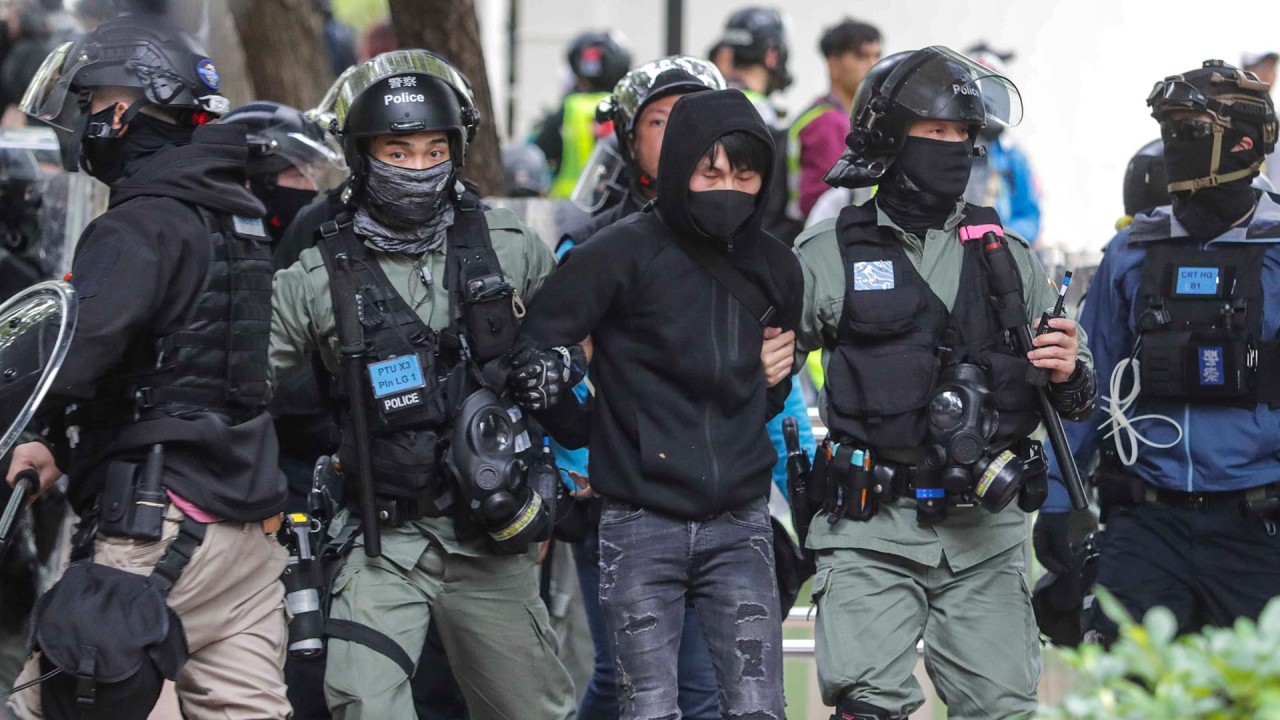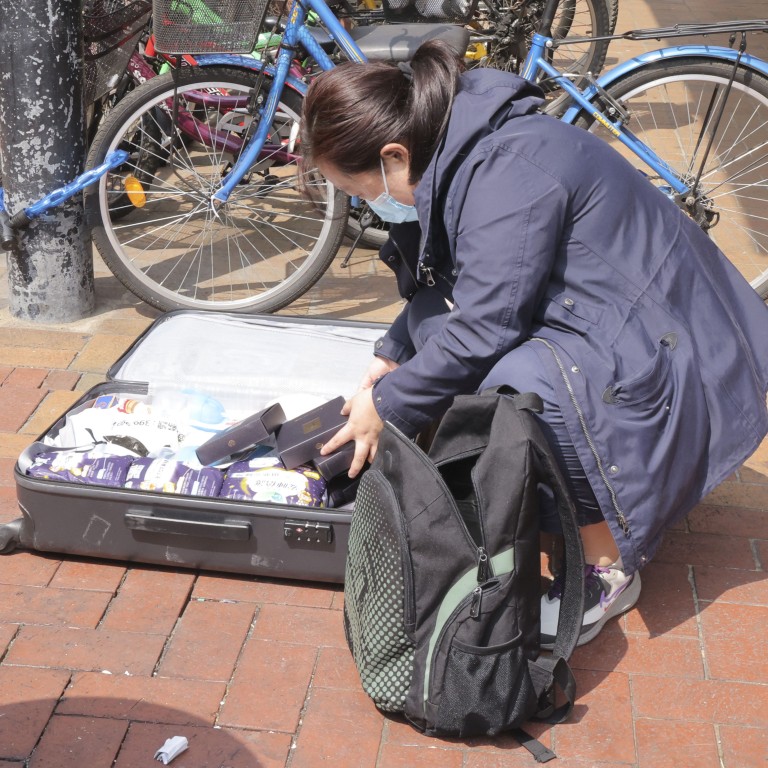
‘We are just earning a living’: parallel trading on the rise in Hong Kong border town as trend makes comeback post-Covid curbs
- Post observes return of such activities outside Sheung Shui MTR station, with individuals dispersing when police arrive only to regroup after officers leave
- Insider reveals courier recruitment messages are rife on mainland Chinese social media, and instructions are simple, luring many with easy money
Shenzhen resident Charlene Yang runs an online retail business, but also earns extra cash on the side by being a parallel trader – crossing the border into Hong Kong and hauling home a stash of goods, mainly cosmetics, to be sold tax-free for profit.
The 30-year-old live streamer on Douyin, one of the most popular social platforms in mainland China, spent about HK$20,000 (US$2,550) on perfume and luxury skincare items, including La Mer moisturiser and an Aesop body cleanser, at a pharmacy in Hong Kong’s Sheung Shui on her latest trip.
“These items are popular among my customers whenever I host live shows on Douyin. Now that the Hong Kong-mainland border has reopened, I can just simply come to Sheung Shui and restock my inventory,” Yang said.
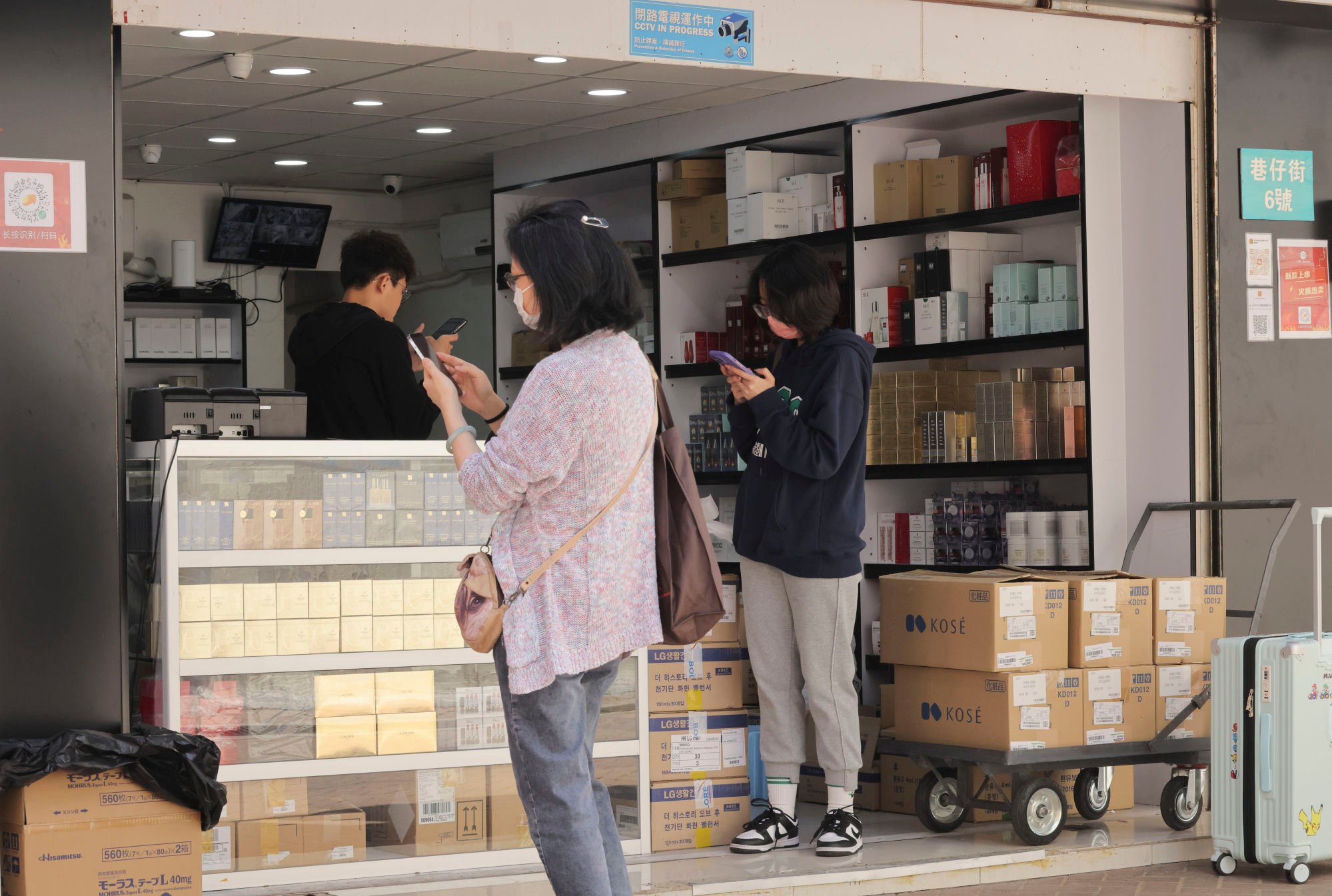
She is part of a returning trend, unpopular with locals, outside Sheung Shui MTR station in the Hong Kong border town since all pandemic-related travel restrictions between the city and the mainland were cancelled earlier this month.
Parallel traders buy stock in Hong Kong and then resell it on the other side of the border at a profit to evade hefty mainland import and value-added taxes.
Hong Kong customs to meet Guangdong counterparts over parallel trading resurgence
Fuelled by higher taxes on consumer products across the border and confidence in the quality of Hong Kong goods, parallel trading in Sheung Shui was rife for decades before the pandemic and the 2019 anti-government protests hit the city.
Tourists and parallel traders were often seen outside pharmacies or Sheung Shui MTR station packing various consumer items into suitcases. Their actions raised the ire of residents concerned about hygiene, pedestrian obstructions and stock depletion at shops, leading to protests throughout the years.
“Online shopping and live streaming e-commerce are new trends that have emerged on the mainland after the Covid-19 pandemic, but some people still prefer shopping from parallel traders. I’m fine with bringing items back home, I earn HK$150 per trip. I’m on my way home anyway,” Yang said.
The Post learned that Hong Kong customs’ intelligence showed such traders deployed couriers, largely local residents, who were paid anywhere from dozens of dollars to more than HK$100 per trip to bring goods across the border.
The Sheung Shui station is only one stop from the border crossings at Lo Wu and the Lok Ma Chau Spur Line.
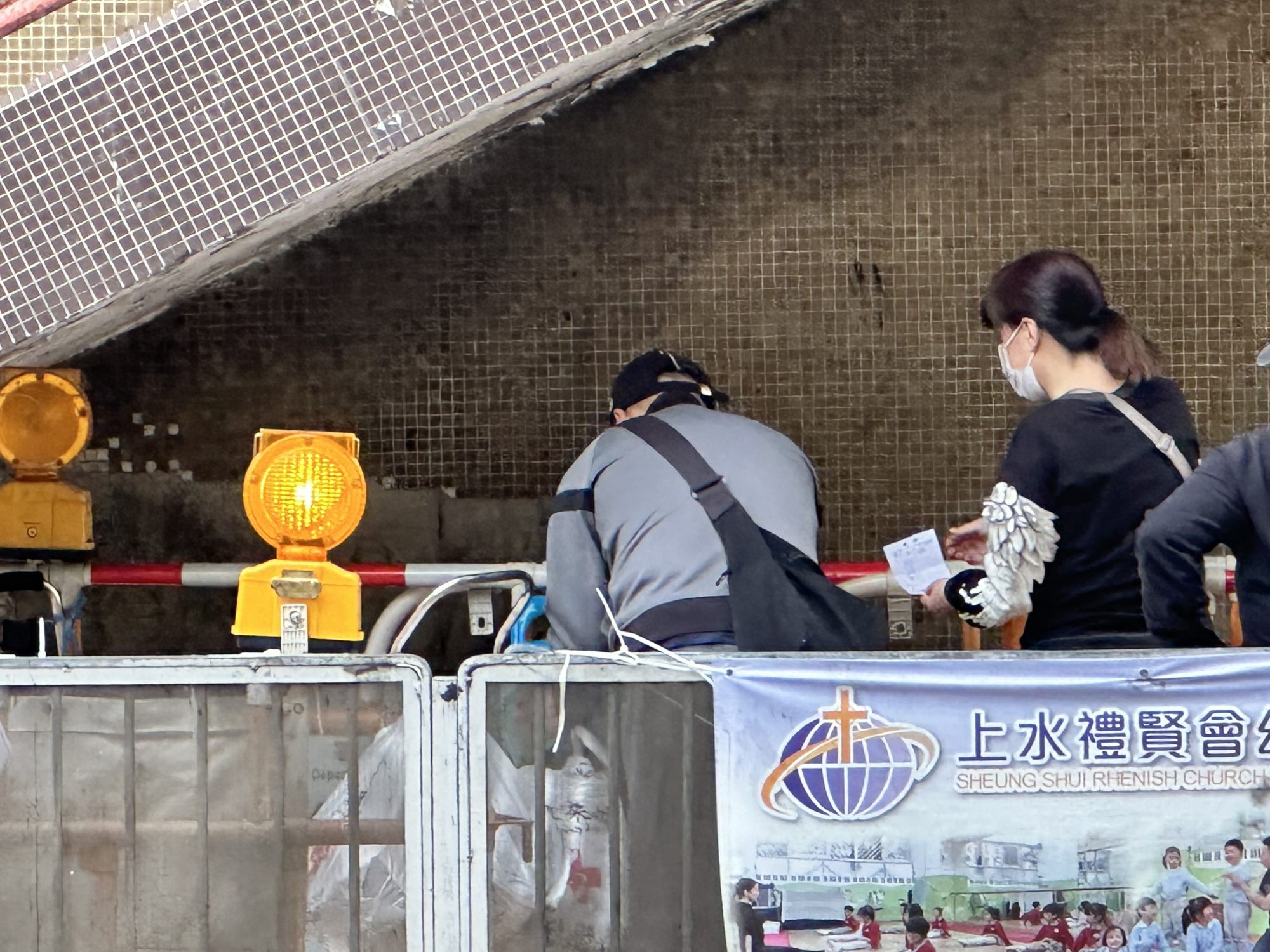
Customs has vowed to crack down on a resurgence in parallel trading, sending a team of officers led by Assistant Commissioner Mark Woo Wai-kwan to Guangzhou last week to meet Guangdong counterparts for talks on dealing with smuggling activities.
Police on Saturday said that over the previous two days they had fined two women, including a 46-year-old who was arrested for obstruction of public places involving HK$30,000 worth of goods, and two men. Law enforcement authorities had carried out 26 rounds of their crackdown on parallel imports over the past seven weeks.
Before the pandemic hit, Shenzhen customs authorities logged about 9,000 smuggling cases by parallel traders at boundary control points, involving goods with a total value of more than HK$75 million between January 2018 and May 2019.
In that period, Hong Kong customs arrested 5,500 people over illegal export of powdered formula and seized more than 26,000kg of such products.
Shenzhen resident Yang revealed that courier recruitment messages were all over Chinese messaging app WeChat and the instructions from parallel traders were straightforward.
“They will text and tell you where to go and meet someone with a specified outfit. And that person will give you items with a list. Then I just take them back to Shenzhen and pass them to another person somewhere near Luohu Commercial City [on the Shenzhen side]. Then, I get paid,” Yang said.
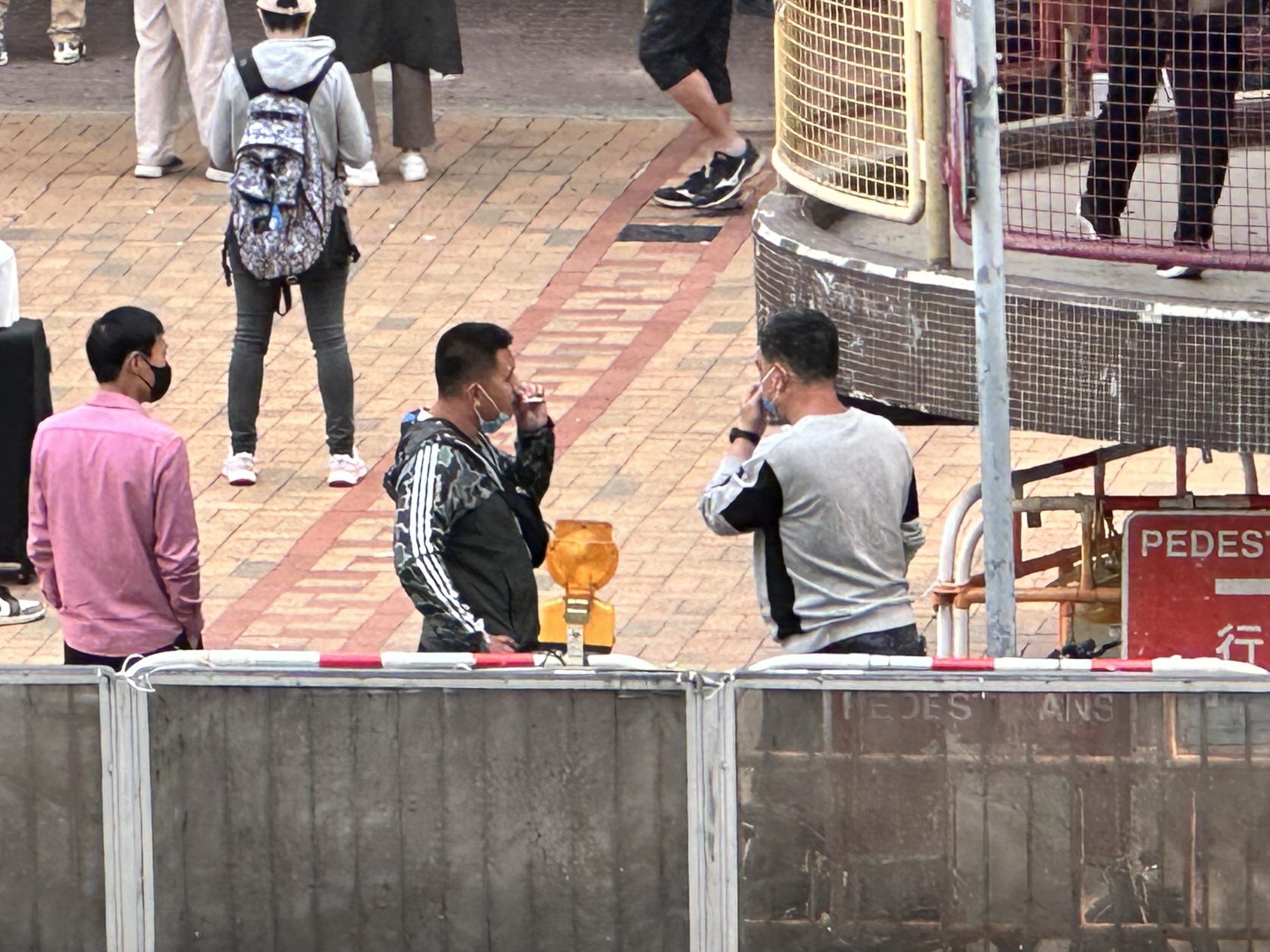
The Post observed a few parallel traders passing products with a note to couriers outside Sheung Shui MTR station last week. The couriers then packed the items – mainly wine and cosmetics – into suitcases or bags and entered the station.
Some other individuals were spotted lurking at nearby staircases and on a pedestrian bridge overlooking the area, presumably acting as lookouts.
About an hour into the observation, two parallel traders, both men, walked across the road and asked the Post’s reporter to leave and stop taking photos.
Pro-democracy party to hold rally targeting shoppers from mainland China
“You’d better leave now if you are not police. We are just earning a living and we do not earn much. The profit margin is small. You are here to sabotage our business,” one of the men warned.
Before noon, two police vehicles showed up and 10 officers walked towards the station exit, urging people not to gather. Some of them talked to traders with trolleys and big carton boxes.
The parallel traders and couriers dispersed but returned after police left.
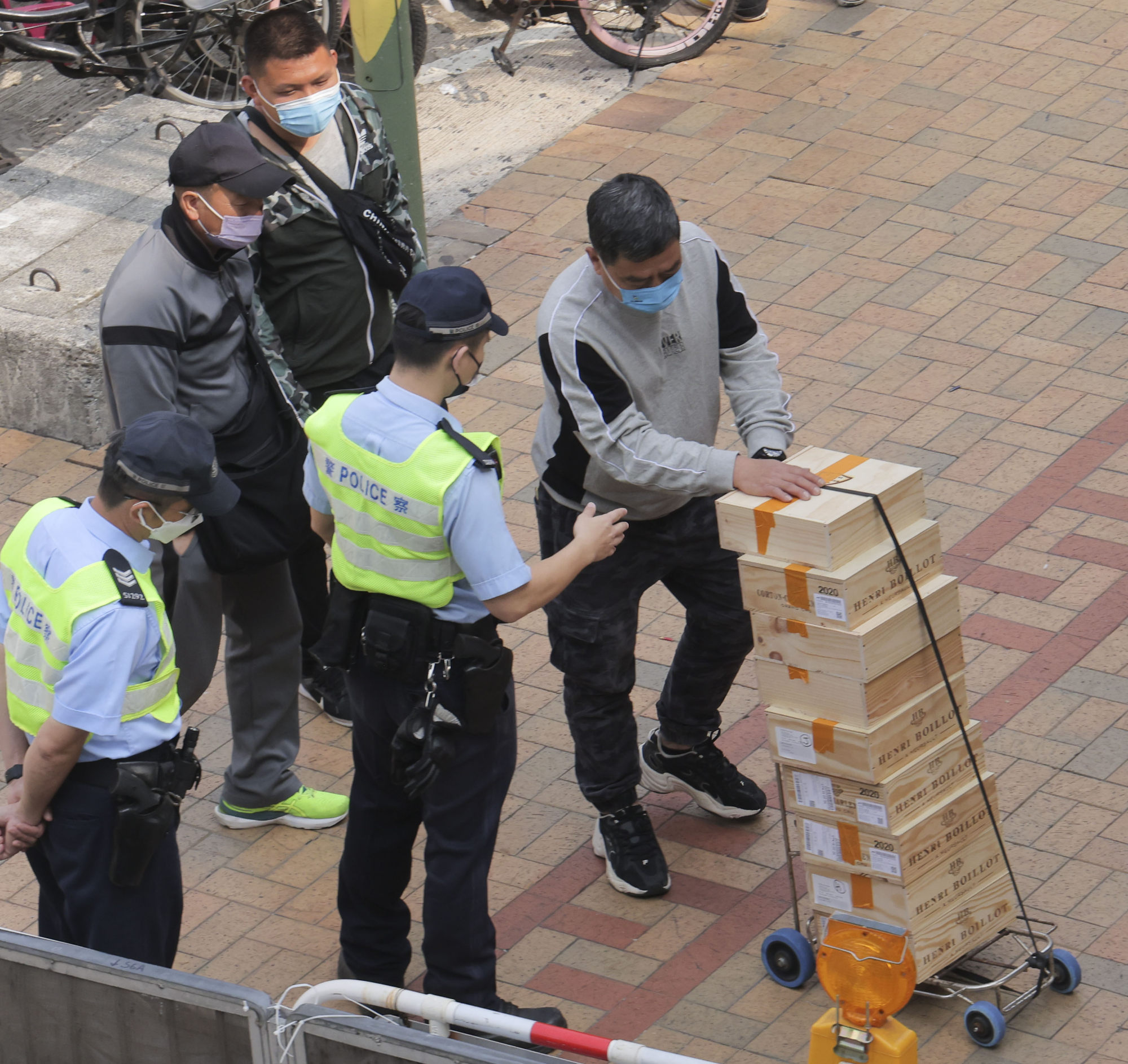
Lee Fung-king, a manager with a pharmacy in Sheung Shui, said she had not noticed a significant rise in the number of parallel traders and couriers.
“We have more customers from the mainland after the borders were fully reopened, but most of them are individual tourists and some of them are social media influencers,” she said.
She added that skincare products and perfume were the most sought-after. Some people bought a lot of toothpaste and shampoo.
“But as a business, we welcome all kinds of people who shop at our store including parallel traders,” Lee said.


